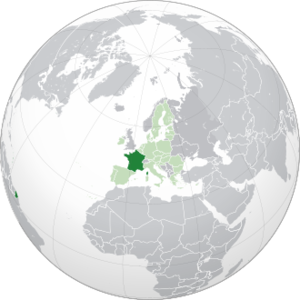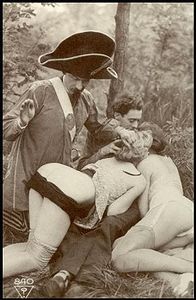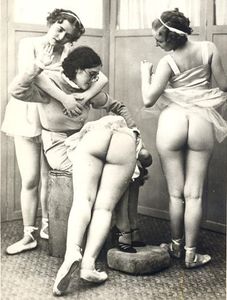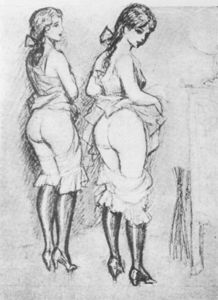France
| France |
|
(and Frances largest city) |
Source information is available at [ Sources ] |
France is a Western European country with several overseas regions and territories. Its metropolitan area extends from the Rhine to the Atlantic Ocean and from the Mediterranean Sea to the English Channel and the North Sea. Overseas territories include French Guiana in South America and several islands in the Atlantic, Pacific, and Indian Oceans. France borders Belgium, Luxembourg, and Germany to the northeast, Switzerland, Monaco, and Italy to the east, Andorra and Spain to the south, as well as the Netherlands. Its eighteen integral regions (five of which are overseas) span a combined area of 643,801 km2 (248,573 sq mi) and over 67 million people (as of May 2021). France is a unitary semi-presidential republic with its capital in Paris, the country's largest city and main cultural and commercial center; other major urban areas include Lyon, Marseille, Toulouse, Bordeaux, Lille, and Nice. Including its overseas territories, France has twelve time zones, the most of any country.
History
Since the Palaeolithic era, France was settled by Celtic tribes known as Gauls during the Iron Age. Rome annexed the area in 51 BC, leading to a distinct Gallo-Roman culture that laid the foundation of the French language. The Germanic Franks arrived in 476 and formed the Kingdom of Francia, which became the heartland of the Carolingian Empire. The Treaty of Verdun of 843 partitioned the empire, with West Francia becoming the Kingdom of France in 987. In the High Middle Ages, France was a robust but highly decentralized feudal kingdom; a distinct French identity emerged only during the Hundred Years' War of the 14th and 15th centuries. The French Renaissance saw a flowering of art and culture, various wars with rival powers, and the establishment of a global colonial empire, which by the 20th century would become the second-largest in the world. Severely weakened by the Thirty Years' War and religious civil wars of the 17th century, France reemerged as the dominant cultural, political, and military power in Europe by the early 18th century under Louis XIV. The losses of the Seven Years' War and costly involvement in the American Revolution precipitated the French Revolution of 1789, which overthrew the absolute monarchy, replaced the Ancien Régime with one of history's first modern republics, and produced the Declaration of the Rights of Man and of the Citizen, which expresses the nation's ideals to this day.
France reached its political and military zenith in the early 19th century under Napoleon Bonaparte, subjugating much of continental Europe and establishing the First French Empire. The French Revolutionary and Napoleonic Wars shaped European and world history. The empire's collapse initiated a period of relative decline, in which France endured a tumultuous succession of governments until the founding of the French Third Republic during the Franco-Prussian War of 1870. Subsequent decades saw a period of optimism, cultural and scientific flourishing, and economic prosperity is known as the Belle Époque. France was one of the major participants of World War I, from which it emerged victorious at great human and economic cost. It was among the Allied powers of World War II but was soon occupied by the Axis in 1940. Following liberation in 1944, the short-lived Fourth Republic was established and later dissolved in the course of the Algerian War. The current Fifth Republic was formed in 1958 by Charles de Gaulle. Algeria and most French colonies became independent in the 1960s, with the majority retaining close economic and military ties with France.
France retains its centuries-long status as a global center of art, science, and philosophy. It hosts the fifth-largest number of UNESCO World Heritage Sites and is the world's leading tourist destination, receiving over 89 million foreign visitors in 2018. France is a developed country with the world's seventh-largest economy by nominal GDP and ninth-largest by PPP; in terms of aggregate household wealth, it ranks fourth globally. France performs well in international education, health care, life expectancy, and human development rankings. It remains a great power in global affairs, being one of the five permanent members of the United Nations Security Council and an official nuclear-weapon state. France is a founding and leading member of the European Union and the Eurozone,[20] as well as a key member of the Group of Seven, North Atlantic Treaty Organization (NATO), Organisation for Economic Co-operation and Development (OECD), and La Francophonie.
Spanking in France
In the 20th century, school corporal punishment fell out of fashion and was gradually banned in many countries, a trend that continues until the present day.
As of May 2008, France permits corporal punishment in schools.
From antiquity to modernism, spanking was as popular in France as in the rest of Europe, and its use as a parenting tool greatly reduced in the 2nd half of the 20th century. Nonabusive spanking isn't illegal in France, however, as in Sweden, Germany, and other European countries. On 23 December 2009, Paris MP and pediatrician Edwige Antier proposed a bill that would prohibit corporal punishment, including spanking of children.
The French gave the world a particular spanking implement: the martinet.
Spanking poll 2006/2007
An investigation of the Union des familles en Europe carried out in 2006/2007 among 685 grandparents, 856 parents and 776 children in France gave the following results:
95% of the grandparents, 95% of the parents, and 96% of the children got spanked. The spankings came mainly from their parents. Non-parental spanking has decreased over the last three generations: 52% of the grandparents (58% boys, 46% girls), 39% of the parents (50% boys, 27% girls), and 34% of the children (37% boys, 30% girls) have been spanked by a third party, at school, or other family members.
62% (grandparents), 64% (parents), and 55% (children) found that the spankings were (largely) deserved (this increased to over 60% among older children). 34% of grandparents, 25% of parents, and 22% of children feel they were punished too much; 7% of grandparents, 9% of parents, and 9% of children feel that they have been punished not enough.
64% of the children intend to raise their children as they were, 22% less severe, 14% more severe (but 18% of older children would raise their children more severely). 26% of the children want more spankings in education. Children that would be less severe in their education would not ban all spanking but would give fewer spankings on the bare bottom (many notes), not use the hairbrush or martinet, or limit the number of strokes.
27%, 34%, and 37% of grandparents, parents, and children want to forbid corporal punishment by law. But even these often want to distinguish between corporal punishment and “a spanking” (meaning hand-spanking), which is not considered a corporal punishment.
French spanking art
Satire of French history from Ostra Studio (c. 1930s)
1930s French erotica from Ostra Studio
Spanking drawing by Louis Malteste
Illustrated spanking novels were published a lot in France between the 1900s and the 1930s (see early 20th century French spanking literature). So, there is a lot of French spanking art from these decades. Artists of that era include Don Brennus Aléra, Lewis Bald, N. Carman, Maurice de Vindas, Pierre Dumarchey, J. X. Dumoulin, Fontana, Louis Malteste, Eugene Reunier and Georges Topfer.
Contemporary French artists include Azraël, ArnDaBrat, erik and Flatt.
See also [ French Correctional Courts ]
Spanking videos
- The Day of the Locust (1975), American film set in 1930s Hollywood shows part of a French stag film, La Predicament de Cherie, in which a man spanks his maid.
- Les Betises et la Fessee de Bebe Kio (Reseau Fessestivities.com), video
- Diabolical French Breast Torment: La Lettre (Gerard Titsman, U.S. release by B&D Pleasures, 1998), breasts, video scene, complete video
- Exclusive Education 08: Day 2 (Girl Spanks Girl), set in France, photos
- Exclusive Education 08: Day 3 (Girl Spanks Girl), Snow Mercy, Veronica Ricci, Missy Rhodes, Nikki Rouge, Koko Kitten (photos)
- La fessée à l'école ("The Spanking at School") 1930s sex and spanking stag reel, donkey cap, (video at Xvideos)
- La Fessee du Pain (Reseau Fessestivities.com), short switching reel (video)
- French breast whipping video (Gerard Jassman, c. 1998)
- French for Beginners (Well Smacked Seat/Bellington Academy), Bonnie May, Misa Ashbrook, Rebecca, photos, part 2 photos
- Koko and Nikki Spanking in France (Spanked Call Girls), Koko Kitten, Nikki Rouge, mirror spanking, photos
- Martinet whipping (video)
- Missy Spanked in France (Girl Spanks Girl), photos
- La Petite Effrontee (Reseau Fessestivities.com), recreation of 1930s spanking reel (Xvideos video)
- Fessee Pour des Prunes (Reseau Fessestivities.com), recreation of 1930s spanking reel (video)
- Punishment in the Forest (Reseau Fessestivities.com), video
- T.B.T. Trailer (French Breast Torment series), video
- Whipping of a submissive (Reseau Fessestivities.com), video
Image:Ost-history.jpg|Satire of French history from Ostra Studio (c. 1930s). Image:Balletspank.jpg|1930s French erotica from Ostra Studio. Image:Malteste 24.jpg|Spanking drawing by Louis Malteste. </gallery>
Videos on YouTube
|
|
Prostitution in France
- Prostitution in France on our website
- Prostitution in France ↗ on Wikipedia
Sources
Notes
- ↑ From: Deutsche Welle (December 18, 2009)
External links
- Proposition de loi de Mme Edwige Antier visant à abolir les châtiments corporels infligés aux enfants (22 janvier 2010)
- French Video from an Alsatian television channel about the coming commencement of the interdiction of spanking (avril 2010)
- CIA Factbook link for France
- Images from France on Bing.com
- More information is available at [ Wikipedia:France ]
Chat rooms • What links here • Copyright info • Contact information • Category:Root




